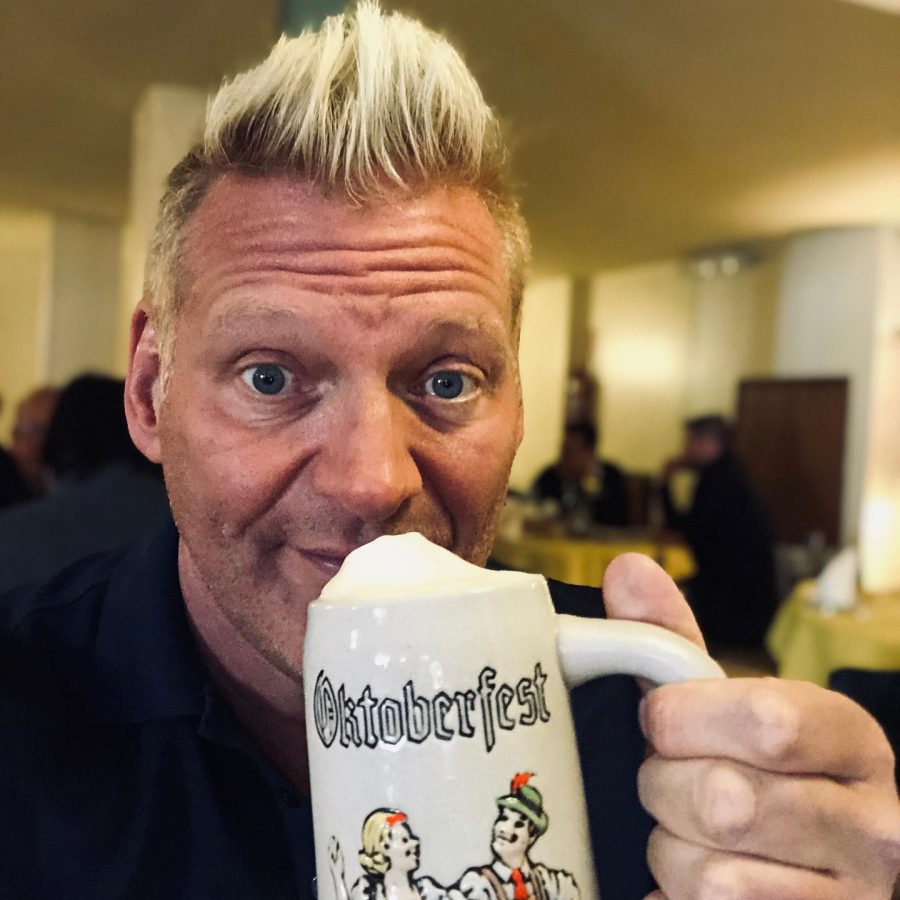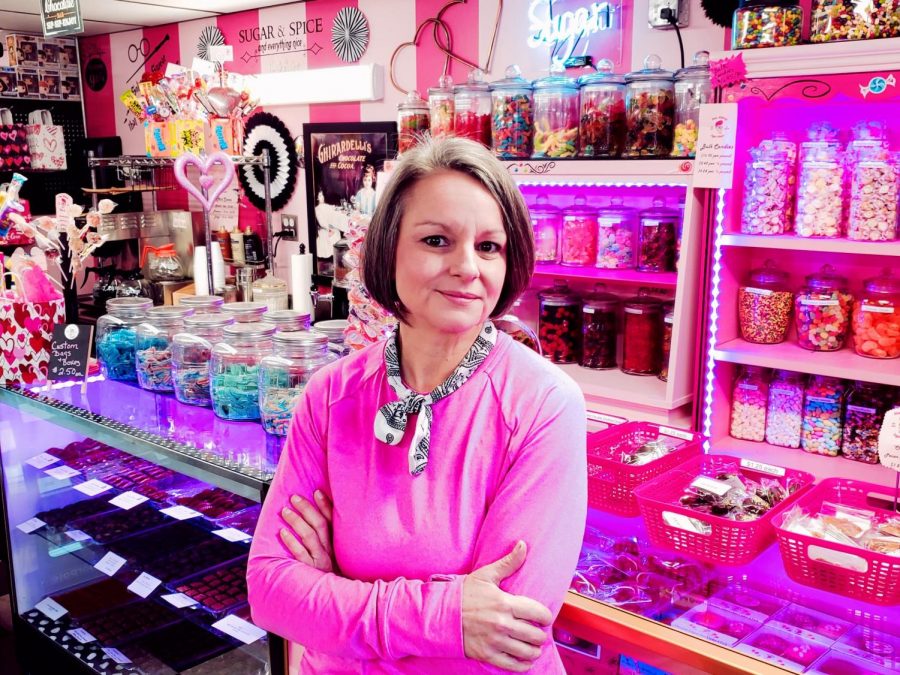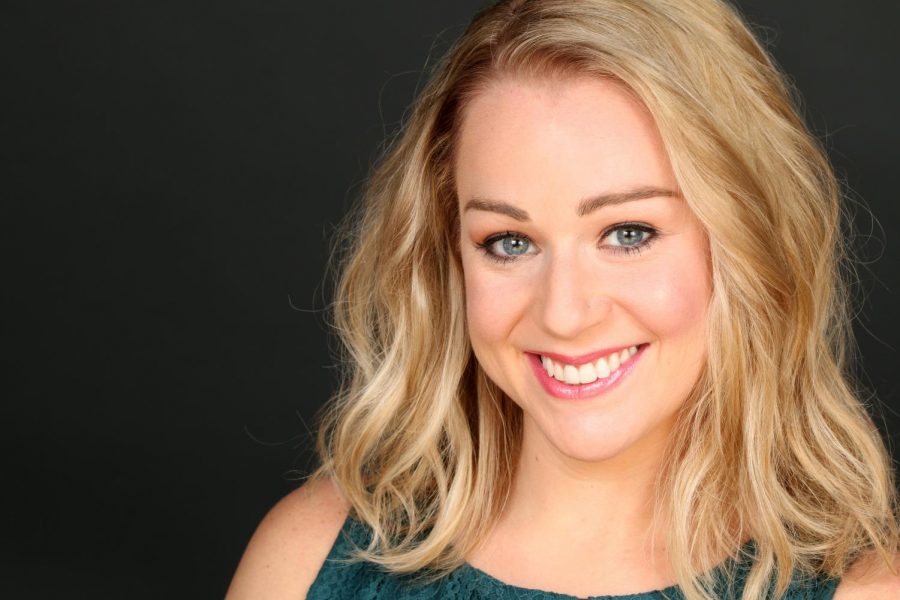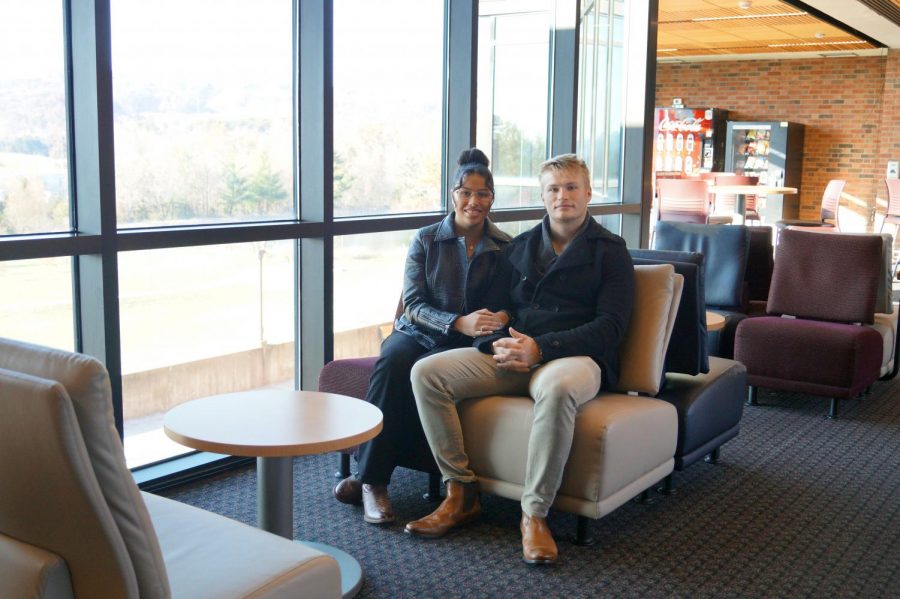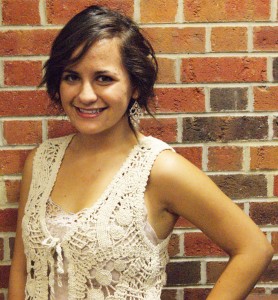
Anita Viviano, Spanish international studies and communications junior, was inspired by her Ecuadorian heritage to help the Hispanic community.
Viviano lived in Quito, Ecuador, and she said she lived the city life. However, Quito is far different than any average U.S. city.
According to “Volcanoes of the Andes” on Ecuador-travel.net, Guagua — one of the active Pichincha volcanoes — is about 10 km away from Quito.
Viviano said while the volcano was far away from her home, she felt it was right behind her house because of the danger it caused. She said she clearly remembered when the volcano made a mushroom funnel of smoke in 1999 and covered the city with volcanic ash.
“We constantly lived with this,” Viviano said. “We would go out to the country to get away.”
Viviano said she remembers her life in Ecuador to be much different from the U.S. The people there are livelier and friendlier.
“In the U.S. people live to work,” Viviano said. “People over there work to live.”
Viviano said in the U.S., a group of friends will go out to a restaurant, eat and be done for the night.
“In Ecuador, after you go out to a restaurant people say ‘what do we do next?’” Viviano said.
Because she is from two different backgrounds, Viviano said she has a greater appreciation of other cultures. She said she enjoys learning about any type of culture, especially Hindi. She said this is why she is majoring in international studies and communications.
Viviano said in her future she wants to work with people and help the Spanish community succeed.
“I understand them more than other people because I was there adapting to the culture, learning the language and the customs,” Viviano said.
Before she moved to the U.S., Viviano was told she was going on a trip to visit relatives. Her mother’s family lives in Louisville and her parents frequently went on trips to the U.S. to work.
“It made sense,” Viviano said. “My parents would sell handmade things from Ecuador. They worked at festivals in the U.S.”
After venturing from Ecuador to Louisville, Viviano was told they were going to permanently stay in the U.S.
“My world got flipped upside down,” Viviano said.
At 9 years old, Viviano said this was a difficult transition to make. She had to leave all her toys, clothes, friends and family behind in Ecuador.
Not only was she unable to say good-bye to her life in Ecuador, but she said she experienced a major cultural shock.
“I was popular in Ecuador,” Viviano said. “I had friends. When I moved here I didn’t have friends. I couldn’t speak English.”
Viviano said she would get made fun of in grade school because she didn’t fit in with the other children. Viviano said she joked how, if it were happening today, she would beat them up.
As a young student who couldn’t speak English, she said it was tough to defend herself.
Viviano transferred to a Christian school, which she said it made her transition into American culture a little easier.
“People were nicer,” Viviano said. “They were more accepting of other cultures.”
Along with the new, more accepting school, Viviano said the government sent someone to help her with her homework. Also, her mother hired a tutor after school to help her with her English.
Viviano said she remembers all the help she was given to learn and understand this new culture and this is her inspiration for her career.
Viviano said since she is now “Americanized,” she wants to improve her Spanish to help people who are struggling to learn English.
Elizabeth Jackson, international studies senior, met Viviano through the IUS mentoring program.
“She’s always looking for ways to help people,” Jackson said. “In order to help people, you have to mean well, and she does.”
Although Viviano said she feels close to her Ecuadorian heritage, she said she is American and sometimes it’s difficult to relate to either culture.
“I’m not fully American,” Viviano said. “I’m not fully Hispanic. So, who am I?”
She said there are many stereotypes associated with Hispanic culture. She mentioned one in particular.
“Hispanic people are always late — it’s true,” Viviano said, laughing.
She also said people stereotype Hispanics to be lazy and disrespectful. However, Viviano said this could not be further from the truth, and there are many hardworking Hispanic-Americans.
One of the biggest differences in the two cultures Viviano said stands out to her is music. She said many of her friends from the U.S. can relate with music from the U.S., while she enjoys Hispanic music. She said her favorites are salsa and reggaeton.
“It helps me go back to my culture a little bit,” Viviano said about salsa dancing.
When she’s not at school or doing homework, she’s going out with friends or spending time with her family.
However, she said while most students want to leave the nest, she wants to stay at home.
By BRITTANY POWELL
Staff
bripowel@ius.edu

